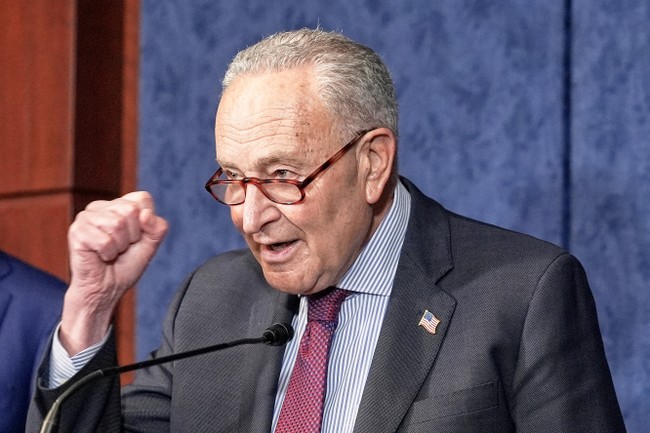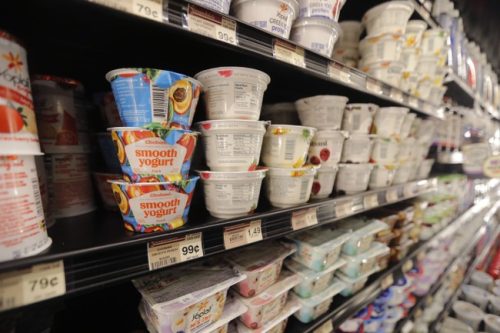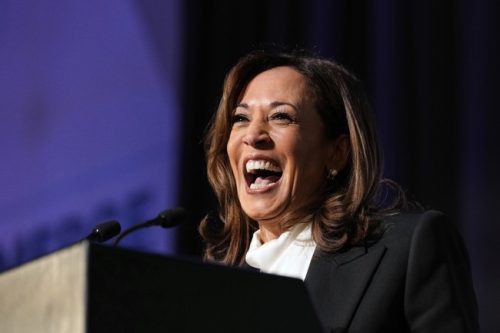The Schumer shutdown is creating unexpected political fallout, and even mainstream outlets are noting it. Polling shows Republican standing improving through the shutdown weeks while Democrats struggle to regain momentum after 2024 losses. CNN’s own analyst raised eyebrows over numbers that undercut conventional expectations about who benefits when government halts. These shifts matter for the next midterm cycle and for how voters view both parties on competence and priorities.
The narrative started to crack as the shutdown stretched into its fourth week and media outlets began parsing approval numbers. Instead of collapsing under blame, the Republican brand has nudged upward in several polls, a trend that runs counter to normal shutdown dynamics. That unusual movement forced fresh analysis and frank discussion on air about why voters appear to be rewarding the GOP. It’s not a small blip; it’s a pattern seen across multiple measures of sentiment.
CNN chief data analyst Harry Enten was plainly surprised by the trends, noting the conventional expectation that a shutdown would ding Republicans because they control Congress. He asked, “You might think, given that the Republicans are in charge of both the House and the Senate, that a government shutdown might actually hurt the Republican brand.” That observation highlights how unexpected the polling has been for many political watchers.
Enten then walked through the numbers and their implications with a tone that suggested even he didn’t expect to be reporting this. “f anything, it’s been helped a little bit! Take a look here, the shift in net popularity versus pre-shutdown. When we’re looking at the Republican Party overall, that brand, actually up two points. That’s within the margin of error, but clearly it hasn’t dropped,” he said. Those exact figures matter precisely because they contradict assumptions.
The analyst added that the GOP’s net approval has climbed by five points since before the shutdown, and he attributed that not only to an energized base but also to gains among centrists. He emphasized this wasn’t just a rally-the-base story: a portion of independents shifted in the Republicans’ favor at the same time party loyalists remained supportive. That combination is worrying for Democrats who typically rely on midterm backlash when their party controls fewer institutions.
Enten underscored how rare this setup is by comparing it to past midterms, pointing out that the current numbers for Democrats are weak by recent standards. He noted that “when Trump was president the first time around, Democrats were up 11 points,” but now “they’re actually only up three points.” He added: “This is, in fact, the worst position Democrats have been on in a generic ballot at this time in a midterm when there was a Republican president in the last 20 years.
Those comparisons matter because they reframe the shutdown from a temporary budget skirmish into a political event with tangible electoral consequences. If Democrats cannot translate perceived moral or policy ownership of the shutdown into improved standing, they lose their usual midterm advantage. The consequences could ripple through fundraising, candidate recruitment, and messaging leading into the next election cycle.
Voters respond to clarity and competence, and the current polling suggests many see Republicans as clearer or at least no worse than Democrats amid the fight. While shutdowns traditionally help the opposition, this one has become a different animal: the party in power on Capitol Hill is showing resilience, not collapse. That resilience makes it harder for the left to spin the crisis into momentum.
🚨 HOLY CRAP! CNN is SHOCKED after learning Republican approval rating SKYROCKETS during Chuck Schumer's shutdown…BRUTAL.
"It's actually UP 5 POINTS since pre-shutdown! The Republican brand HAS IMPROVED!" 🤯
"Up 8 POINTS among Independents!"
"Up 12 points with the base!"… pic.twitter.com/qCW5UX3jtH
— Eric Daugherty (@EricLDaugh) October 28, 2025
Messaging has mattered too. Republicans who frame the fight around border policy and fiscal priorities have found an argument that lands with part of the electorate. Democrats who framed the shutdown around other priorities have struggled to convert those messages into broad sympathy. The result is a political landscape where the typical rules feel overturned and the usual midterm corrections are less predictable.
Media narratives are shifting because the numbers force them to. When a respected data analyst on a major network describes the GOP brand improving amid a shutdown, that gets attention for a reason: it runs against expectations. Those counterintuitive findings have prompted fresh scrutiny of Democratic strategy and raised questions about whether their coalition remains cohesive after big losses in the last election cycle.
For Republican strategists, the data gives breathing room to press advantage and tighten messaging heading into competitive elections. For Democrats, it signals the need to recalibrate quickly if they hope to regain lost ground among independents and moderates. Either way, the shutdown’s political fallout is now a live factor, and both parties will feel the ripple effects as they plan forward.
Editor’s Note: The Schumer Shutdown is here. Rather than put the American people first, Chuck Schumer and the radical Democrats forced a government shutdown for healthcare for illegals. They own this.
Help us continue to report the truth about the Schumer Shutdown. Use promo code POTUS47 to get 74% off your VIP membership.






